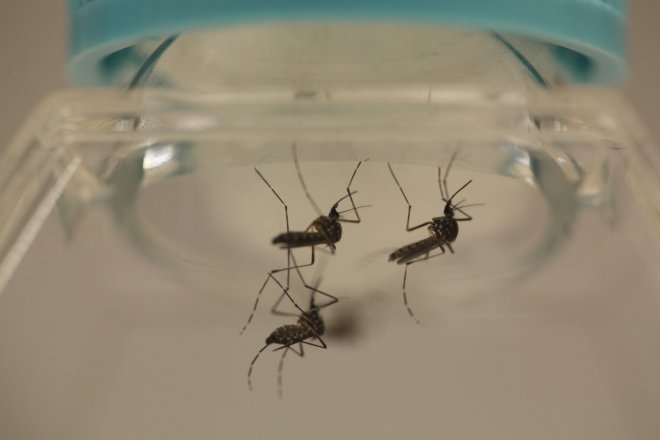
National Environment Agency (NEA) released around 3,000 male Aedes aegypti mosquitoes on Tuesday at Braddell Heights estate to conduct a field study aimed at curbing the population of the disease-transmitting mosquito species.
This is the first batch of the infected mosquitoes to be released, local media reported.
The male mosquitoes are artificially infected with Wolbachia bacteria and when these mosquitoes mate with uninfected females they will produce eggs with very low hatch rate. Experts believe that over time, this could lead to a fall in the Aedes aegypti population, which is responsible for transmitting deadly virus such as the virus that cause dengue, chikungunya and zika.
Male mosquitoes are harmless as they neither bite humans nor transmit disease.
It is reported that several traps have been placed in public locations and residential premises which will recapture the mosquitoes and experts can then determine the progress.
According to The Straits Times, Seah Kian Peng, MP for Marine Parade GRC, said that Braddell Heights is honoured to be the first to take part in this six-month long study.
This study is being conducted by a team of more than 30 experts who have been studying the Wolbachia in the laboratory at NEA's Environmental Health Institute (EHI).
The EHI director Associate Professor also thanked residents who have allowed NEA to place fan traps in their homes to capture mosquitoes. "The people who host the fan (traps) are one of our most important partners," he said, as reported by the news portal.
Two more sites will be added to the experiment in near future, officials said.
On 27 September, NEA announced that nearly 12,000 dengue cases have been reported this year so far which have already claimed seven lives.
NEA believes that the vector control operations play the key solution in reducing the spread of both Zika and Dengue. The officials urge people to be careful use repellents and other necessary protection to avoid get bitten by mosquitoes.









